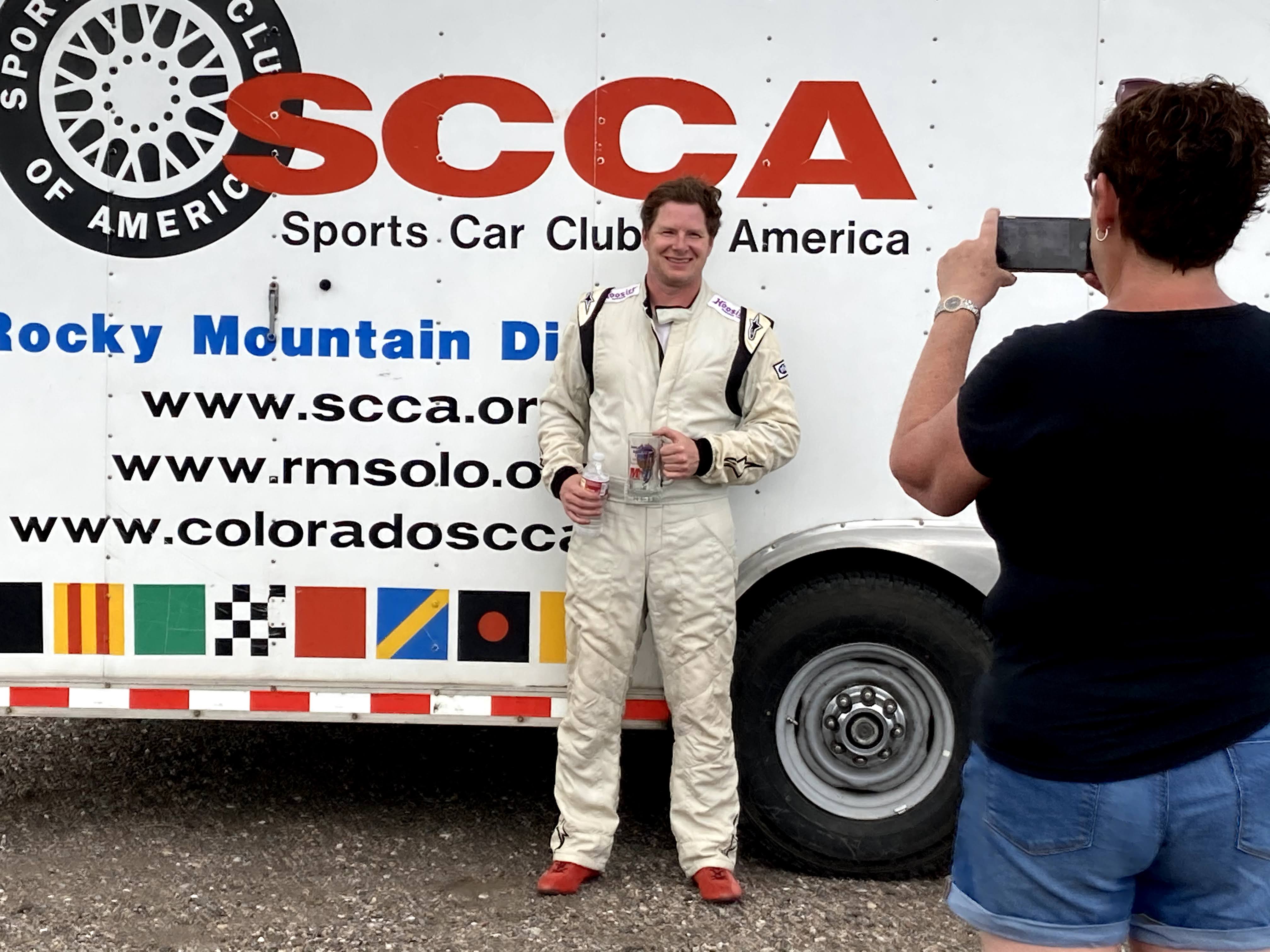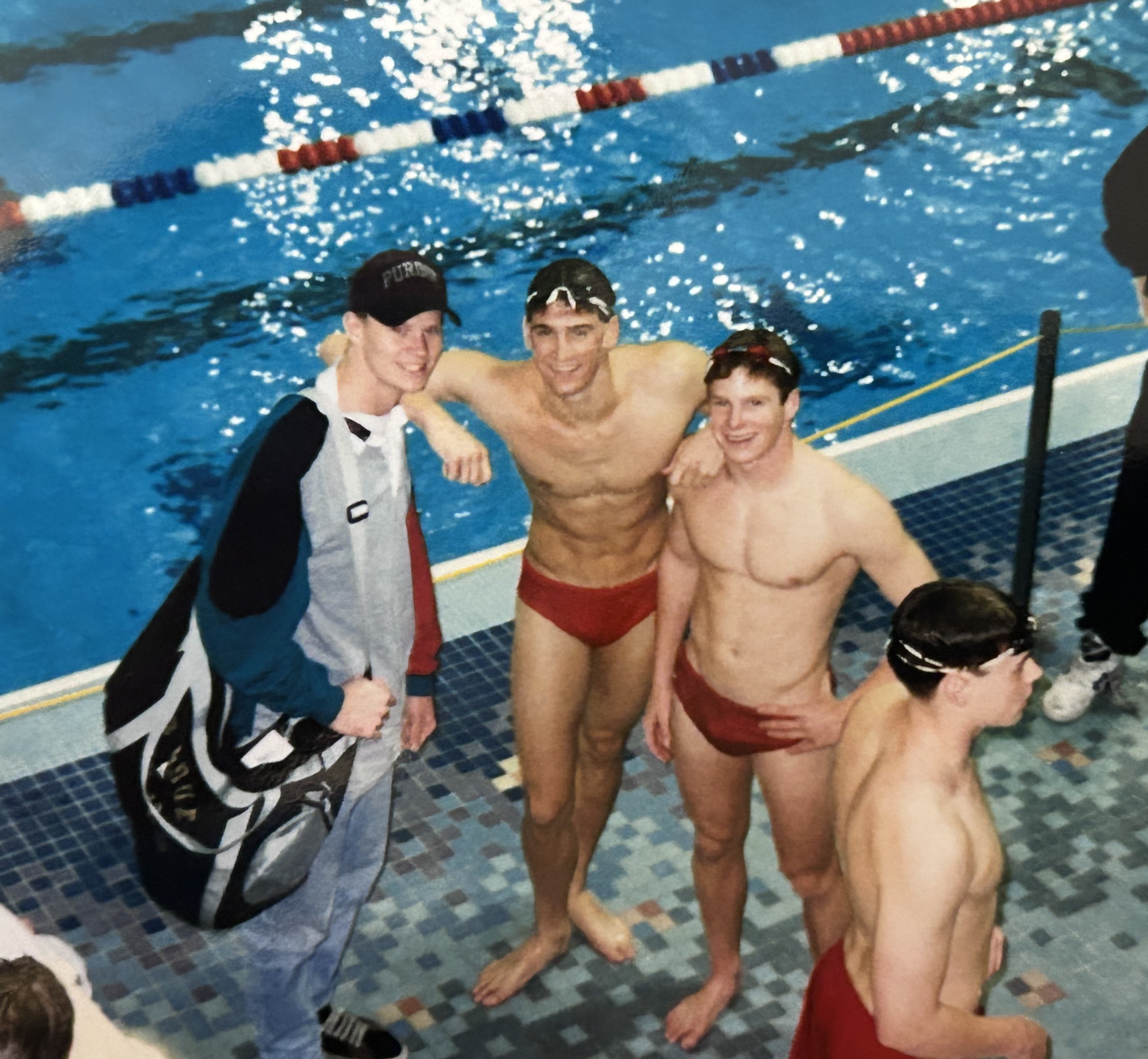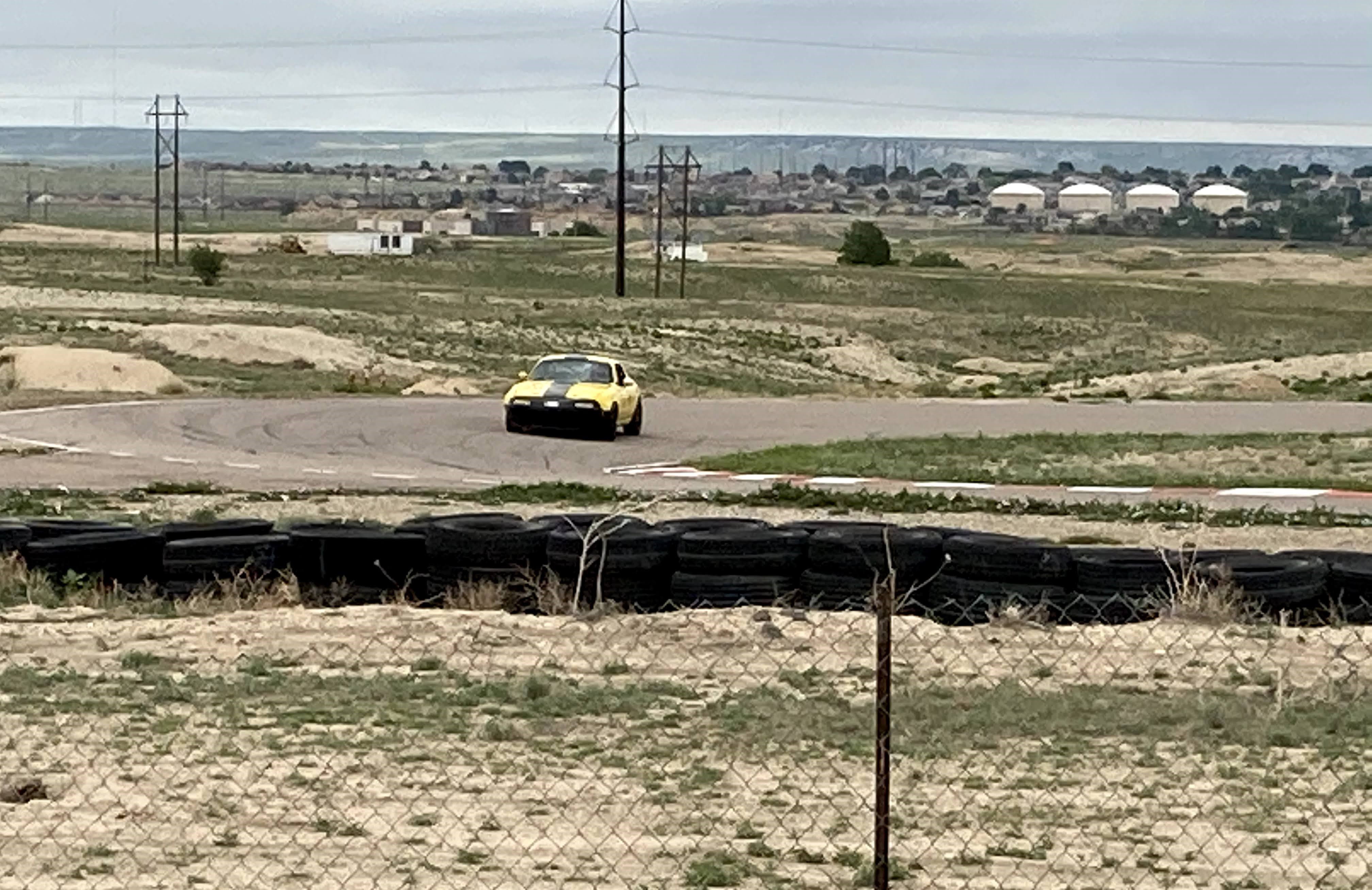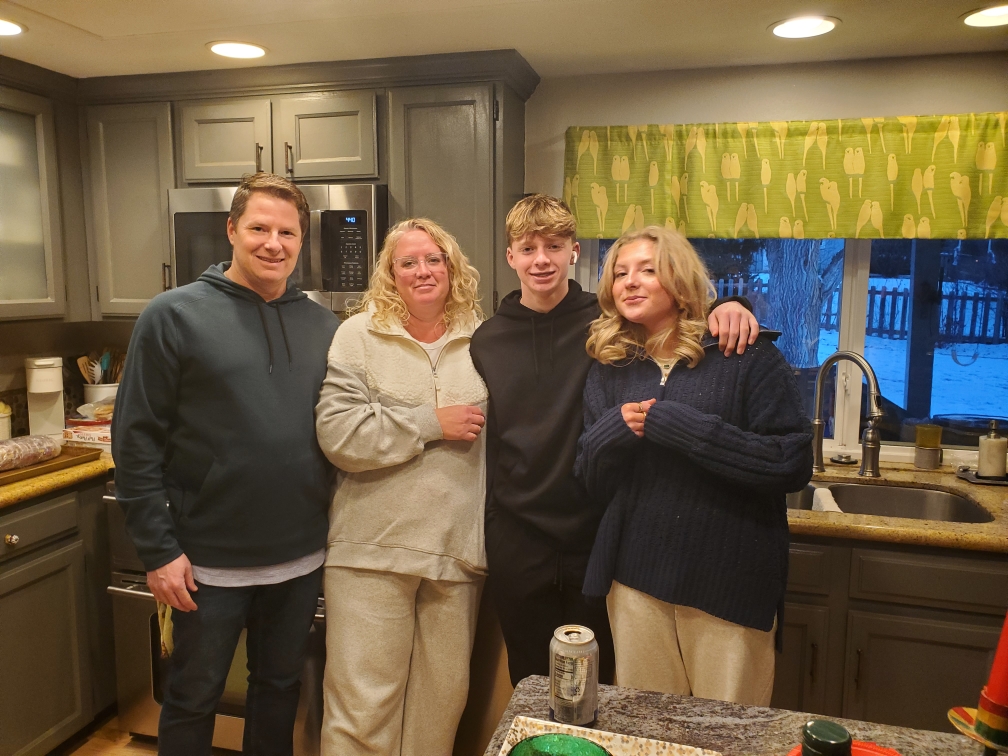Denver attorney displays a special drive to succeed
Articles
Attorney Spotlight
View more from News & Articles or Primerus Weekly
By Brian Cox
During the COVID pandemic some people began baking bread. Others got into jigsaw puzzles or learned to knit. Some binged shows on Netflix.
Denver attorney Jason Wesoky became an amateur race car driver.
A car lover since he was a kid growing up in Englewood, Colo., Wesoky was a regular reader of “Road & Track” and “Car and Driver” magazines. He even hung posters of cars on his bedroom walls. So, when he found himself in need of a hobby during the pandemic, car racing naturally came to mind.
“I thought, if this is what retirement is like, God help me,” he jokes. “I’m going to need a hobby that requires a significant amount of time and attention.”
Wesoky races in the National Auto Sport Association’s and the Sports Car Club of America’s Spec Miata Racing Series, which involves first- and second-generation Mazda Miatas and doesn’t allow engine modifications to the cars. Success in the Specs class relies more on the driver’s skill rather than how much money is poured into modifying the car. Wesoky drives a 1990 Mazda MX-5 Miata with a roll cage.
He remembers one of his first times driving down the straightaway of the track and trying to use the short window between curves to check his mirrors and gauges. He barely had time to check his oil pressure and water temperature, let alone be distracted by mulling over the climate change crisis or a client’s problems or an upcoming trial. The track demanded his full and undivided focus.
“The reason I will keep racing is because you really cannot think about anything else other than what you’re doing,” he says of being behind the wheel. “You literally do not have time to think about anything else because if you start to let your mind drift, you will drive off the track and you could get very hurt.”
Racing cars feeds Wesoky’s competitive urges and captures some of his aptitude to pursue objectives with relentless drive, which can also be seen in his practice of taekwondo for several decades. He is a 5th Degree black belt.
Like his attraction to fast cars, Wesoky was drawn to the law from a young age. His father, Jack Wesoky, was an attorney with the State Attorney General’s Office for many years and the early exposure helped direct his son along a path toward an accomplished legal career.

“I think I always liked the idea of being a lawyer,” says Wesoky. “It seemed to be something I would enjoy doing because I like analysis and writing.”
While he grew up in a largely white, upper middle-class neighborhood, Wesoky credits his parents with instilling in their two sons a broader cultural sensitivity. His mother was a travel agent, and the family had opportunities to travel, which helped widen Wesoky’s perspective.
“We were able to see the world more broadly and develop a keen sense of empathy,” he says. “Ultimately, I think that’s what drove me into the area of law and the type of clients that I have nowadays, which is people as opposed to giant corporations.”
In high school, Wesoky was on the swim team where he competed primarily in the butterfly 100- and 200-meter races and the 200 individual medley. He went on to be a Division I swimmer all four years at Miami University in Oxford, Ohio, where he was named team captain and won the Mid-American Conference championship his junior year. Many of the lessons Wesoky learned in the pool have carried over into his career in law.
“Being a trial lawyer is very similar to competitive swimming,” he says. “You practice all the time for one moment of performance.”
After graduating with a dual degree in creative writing and history, Wesoky headed farther east to attend Catholic University of America Law School in Washington, D.C., where he’d been offered a scholarship. He already knew he wanted to be a litigator, and his competitive nature drove him to earn as much accreditation and as many awards as he could. He approached law school like a job.
“All I wanted to do was prove that I was good at this,” he says.
His work was rewarded and recognized. He graduated magna cum laude and was selected to be the student commencement speaker.
Having met his future wife, Kelly Hogan, while in his first year at law school, Wesoky says his plan was to stay in the D.C. area while Kelly completed her degree in political management at George Washington University. Wesoky took a position with a two-lawyer litigation firm in Baltimore where he primarily assisted the partner who handled civil work.
“It was trial by fire,” recalls Wesoky. “It was not the most conducive environment to learning.”
When Kelly accepted a position back in Colorado soon after she graduated, it was an easy decision for Wesoky to follow her west. In 2002, he joined the newly established Denver office of Perkins Coie LLP, an international business law firm with 21 offices around the world. For the next two years, he managed cases involving breach of contract, malpractice, and shareholder disputes while gaining experience arguing motions, drafting pleas, and assisting in trial preparation.
But there was one box on Wesoky’s resume that he hadn’t yet checked and was determined to accomplish. He wanted a federal clerkship. He had applied for clerkships in law school, but none had panned out, so when an opportunity arose to clerk for Tim Tymkovich on the U.S. Court of Appeals for the 10th Circuit, Wesoky jumped at it. Tymkovich, who had just been appointed, was looking for clerks who had a few years of experience and Wesoky fit the bill.
“I was all about achievement,” he says of his desire for a clerkship. “It was rarefied air.”

Soon after he started the clerkship, the U.S. Supreme Court handed down decisions in U.S. v. Booker and Blakely v. Washington, which held that federal sentencing guidelines were no longer mandatory. For much of the next year, Wesoky helped sort out how the 10th Circuit would approach resentencing issues.
“It was a firehose moment,” says Wesoky, “but it made me realize that I love appellate advocacy. As a lawyer, you go to law school and learn the law, but a trial has nothing to do with the law. It’s about facts. The law almost never invades a trial. So, it’s nice every once in a while to deal only with the law. The facts are essentially irrelevant on an appeal, except for the way they might inform the law that’s being applied.”
He enjoys the improvisational quality of oral advocacy even though it rarely influences the outcome of a case. He has conducted more than 20 oral arguments in the appellate courts, including an en banc argument in the 10th Circuit.
“It’s fun,” he says. “I really enjoy sparring extemporaneously. You prepare, prepare, prepare, but you don’t know what the judges are going to ask. I find the ability to handle those questions without falling on your face a real thrill.”
More recently, he found a similar charge from performing standup in and around Denver’s robust comedy scene, where he was a familiar face in clubs and at open mics for nearly seven years before COVID hit. The hobby allowed him to express his creative and irreverent side.

When the clerkship at the 10th Circuit ended, Wesoky joined Brownstein Hyatt Farber Schreck, a 50-year-old Denver law firm of more than 600 lawyers. Over the next three years, he headed litigation efforts in dozens of civil matters, including a $20 million contract dispute that resulted in a favorable settlement.
And then the Great Recession of 2008 hit and Wesoky found himself caught up in a wave of layoffs at the firm.
“You look back on your life and you see these forks in the road that you have no control over,” he says. “For me, it was the 2008 financial crisis.”
As he looked for a place to land, Wesoky considered two offers: one from a traditional litigation firm and another from Colorado’s most prominent and somewhat notorious personal injury lawyer, Frank Azar, also known through his commercials and billboards as “The Strong Arm,” a phrase Azar has trademarked.
“I can pretty much guarantee that nobody in the history of Brownstein Hyatt Farber Shreck has ever gone from Brownstein’s to Azar’s or anything similar,” says Wesoky wryly. “An advertising personal injury lawyer is the farthest from where I thought I would be.”
He struggled with the decision and sought advice from his father and from Tymkovich, as well as law school friends. In the end, he made the leap, joining Azar’s class action and mass tort group. He took on cases related to pharmaceuticals, employment, wages, and other issues.
Wesoky says the experience was everything any lawyer who has worked for a large personal injury firm would describe. It was a bit chaotic; there were a ton of cases; and the personality who is on the television is the personality that infuses the office. But he enjoyed it.
“What I think I ultimately understood was that representing human beings was much more fulfilling to me than the impressive resume-building that might come from a more traditional firm,” he says.
The position with Azar ran its course in about two years and Wesoky left “The Strong Arm” to become a partner at Darling Milligan, a boutique business law firm where he believed the original partners were considering retiring with the intention of handing over the firm’s reins to a new generation of leadership. After 10 years with the firm, the succession plan Wesoky had anticipated fell apart and he left to join Ogborn Mihm LLP.
As a partner at Ogborn Mihm, Wesoky says his practice covers appellate work, business litigation, personal injury, wrongful death, and more. Having first-chaired nearly 30 civil jury trials, his clients have ranged from a waitress who was in a devastating car crash, to small businesses who were harmed by investors and partners, to a severely brain injured mother. He thrives on the diversity of his practice.
“I do a whole bunch of stuff. Everyone specializes nowadays, but I don’t,” he says. “What my cases have in common, though, is that I represent people who are getting screwed.”
Wesoky and Kelly have been married 20 years and have two children. Caitlyn is a high school senior, and Sawyer is a junior. Both are swimmers and Wesoky has been drawn back to the pool to do some volunteer coaching.

“It’s a different kind of challenge,” he says. “It’s great when you take a kid who can barely do a stroke and by the end of the season, they can do the stroke and are cutting time. That’s a good, intrinsic reward.”
He also serves as president-elect of the Colorado Trial Lawyers Association where he recently helped lead an effort to reform the state’s non-economic damage caps, particularly for medical malpractice cases. The successful effort was the first time since the tort-reform movement of the 1980s and 1990s that Colorado’s damages caps were significantly increased, which will help countless Coloradoans.
Wesoky prides himself on his ability to be clear and direct with clients. He doesn’t shy away from presenting them with the risks they may face.
“I think I am very good at simplifying and understanding the gist of a case, and I think I’m better than most at telling my clients difficult news,” he says. “I also don’t have the ability to stop fighting [for them].”